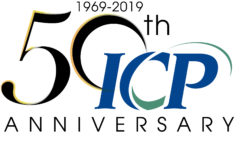DOH Nursing Home Survey
On April 26, 2016, the PA Department of Health (DOH) distributed a letter to all licensed nursing facilities requesting participation in a survey related to the regulations governing operations at both the state and federal levels.
It is our understanding that the survey is being completed in conjunction with the work of the DOH Task Force on the quality of care in Pennsylvania’s nursing homes. The Task Force has been working for almost a year in their evaluation of potential changes needed to enhance the quality of care provided in nursing homes. Based on conversations with DOH, we believe that the purpose of the survey is to collect comments from the industry on the three sets of regulations (State; Current Federal Conditions of Participation; Proposed Federal Conditions of Participation). The survey is the department’s effort to give the regulated community an opportunity to identify regulations that may be ineffective and negatively impact a center’s ability to provide the quality care and services to their residents.
It is important to note that the completion of this survey is not mandatory.
PHCA is engaged in discussions with DOH on this survey, and will be providing comments to it as well.
We will also be heavily involved in the department’s planned process to revise Pennsylvania’s regulations governing nursing facilities and representing the interests of our members, and the residents they care for.
We have advised DOH that a survey of this magnitude will be challenging for nursing facilities to complete and overwhelm the capacity of many facilities given your need to target staff to resident care. That is particularly true given the short response timeframe of less than three weeks.
Should your facility choose to respond to the survey, we have developed some suggestions to help you prioritize your comments given the volumes of work it would take to respond to all three sets of regulations in less than three weeks:
- First, we suggest that you concentrate your detailed responses on the state regulations. You may want to consider using examples from recent surveys where you believe the regulations to be in conflict with current practice in resident care or quality assurance.
- Second, we suggest that you focus your work on the areas that the Task Force indicated to be their focus, which was shared during a recent stakeholder input session with DOH Secretary Murphy. They include workforce development, and a focus on three quality domains—1) patient (resident) centeredness; 2) quality of life; 3) quality of care. Specifically, we suggest that you focus on the state regulatory provisions that hinder the ability of the nursing facility to implement programs that support and provide person-centered care; improve a resident’s quality of life and quality of care, or make it difficult for the facility to timely hire and retain trained, experienced staff.
- Third, we suggest that you comment on any state regulatory provisions that are in conflict with the federal regulations or those that hinder the facility’s ability to meet the obligations of the federal rules. Specifically, an evaluation of the provisions in the federal proposed rule on the conditions of participation around patient centeredness, transitions in care, staff training requirements, infection control and quality.
If you have any questions or need any assistance as you work through the survey please feel free to reach out to Gail Weidman, Director of Policy and Regulatory Affairs or Dawn Murr-Davidson, Director of Quality Initiatives.


